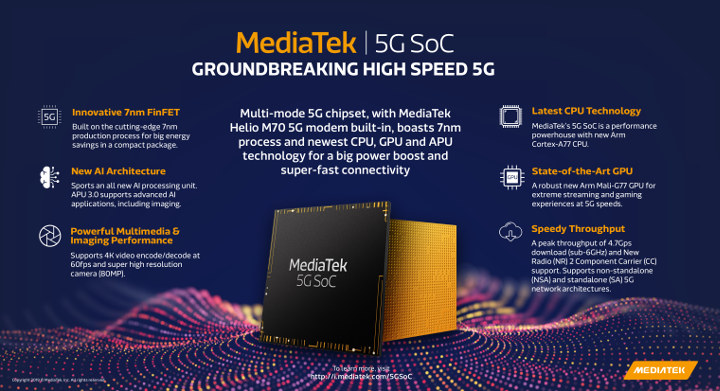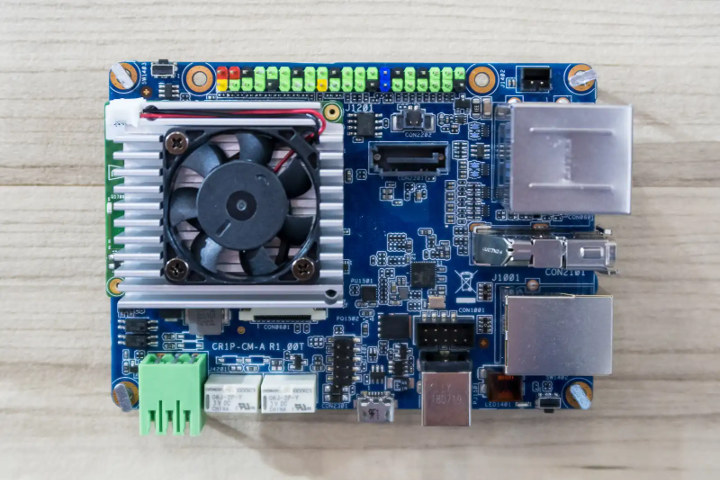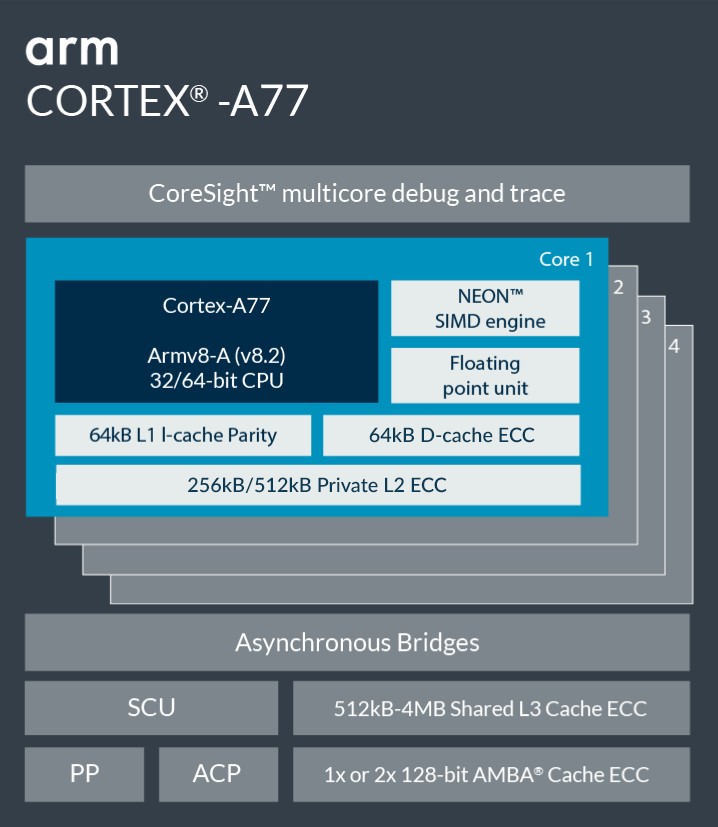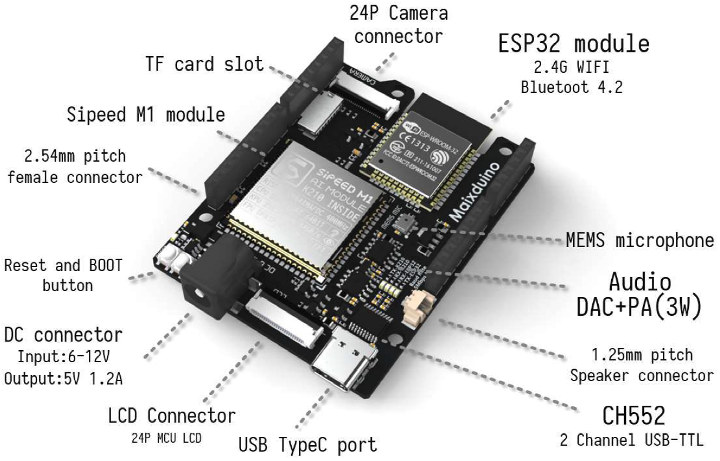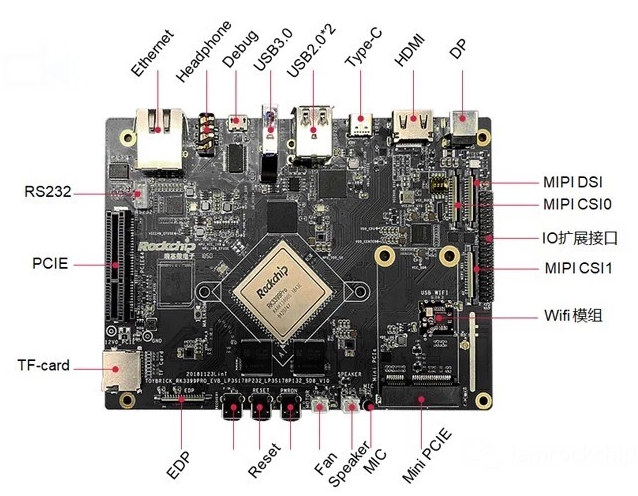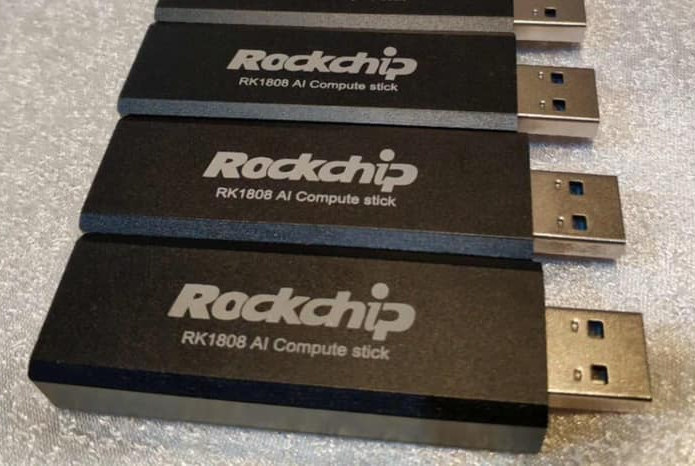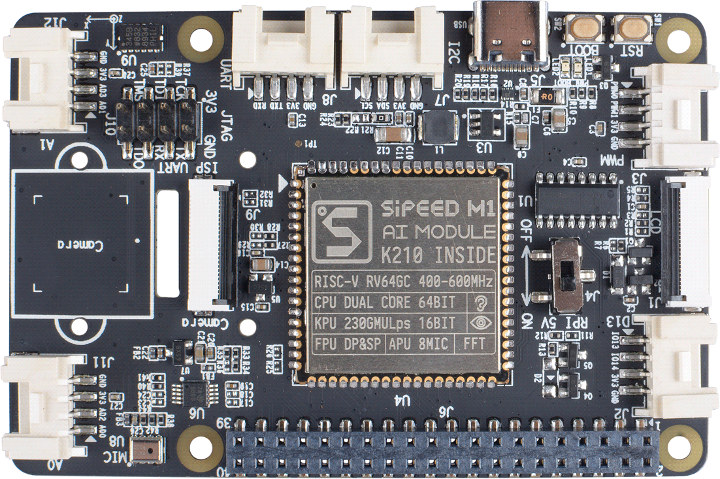It did not take long this time. Just a couple of days after Arm announced their latest Cortex-A77 CPU and Mali-G77 GPU IP blocks, MediaTek unveiled an upcoming 5G processor based on their Helio M70 modem, an unspecified number of Arm Cortex-A77 cores, a Mali-G77 GPU, all manufactured using a 7nm FinFET process. The company did not bother finding a name for the processor nor provided details specifications before the announcement, but here’s what we know about the first MediaTek 5G SoC: CPU- Arm Cortex-A77 cores GPU- Arm Mali-G77 NPU – APU 3.0 with support for advanced AI applications including imaging Video – 4K60 video encode and decode Camera – 80MP ISP Cellular Connectivity – Helio M70 5G modem with peak 4.7 Gbps download using sub-6GHz bands, support for standalone (SA) and non-standalone (NSA) 5G networks Process – TSMC’s 7nm FinFET Samples will be available in Q4 2019, and commercial […]
ASUS Tinker Edge T & CR1S-CM-A SBC to Feature Google Coral Edge TPU & NXP i.MX 8M Processor
A few months ago, Google introduced its Coral development board and USB accelerator powered by their Edge TPU delivering up to 4 TOPS and optimized for Tensorflow Lite. ASUS and Google have now partnered to bring more solutions powered by Coral Edge TPU namely ASUS Tinker Edge T board for makers and hobbyists, CR1S-CM-A SBC for industrial projects, and even a full computer fitted with a Google Edge TPU PCIe card. ASUS Tinker Edge T ASUS Tinker Edge T preliminary specifications: SoC – NXP i.MX 8M quad-core Arm Cortex-A53 processor with Arm Cortex-M4F real-time core, GC7000 Lite 3D GPU ML accelerator – Google Edge TPU co-processor System Memory – 1GB LPDDR4 RAM Storage – 8 GB eMMC flash Connectivity – Gigabit Ethernet port, Wi-Fi 2×2 MIMO (802.11b/g/n/ac 2.4/5GHz), and Bluetooth 4.1 Video Output – MIPI DSI connector, and HDMI output Camera I/F – 2x MIPI CSI 2 interfaces for stereoscopic […]
Arm Introduces Cortex-A77 CPU and Mali-G77 GPU
Arm unveiled its Cortex-A76 CPU and Mali-G76 GPU right before Computex 2018, so it should come as no surprise that the company decided to make announcements for the upgrades before Computex 2019 with the just introduced Arm Cortex-A77 processor, and Mali-G77 GPU. Arm Cortex-A77 Processor highlights: 64-bit Armv8 CPU with support for Armv8.1 and Armv8.2 extensions, as well as Armv8.3 with LDAPR instructions only Up to 4 processors per cluster Cache – 64KB L1 I-Cache / D-Cache, 256KB to 512KB L2 Cache, optional L3 Cache between 512KB and 4MB Improved performance for mobile and laptop devices enabling AAA-gaming, faster web-browsing and application launch time. Brings always-on, always-connected feature set of mobile to laptop devices Compatible with the newly announced Mali-G77 and machine learning (ML) processor. Compared to Cortex-A76, Cortex-A77 yields up to 20% improved IPC performance with similar efficiency. The new IP core is basically an upgrade over A76 with […]
Maixduino SBC Combines RISC-V AI, Arduino Form Factor, and ESP32 Wireless Module
Last year RISC-V cores made it into low-cost hardware with neural network and audio accelerator to speed up artificial intelligence workloads at the edge such as object recognition, and speech processing. More precisely, Kendryte K210 dual-core RISC-V processor was found in Sipeed MAIX modules and boards going for $5 and up. Since then a few other variants and kits have been made available including Seeed Studio Grove AI HAT that works connected to a Raspberry Pi or in standalone mode. Seeed Studio has now released another board with Kendryte K210 RISC-V AI processor, but based on Arduino UNO form factor and equipped with an ESP32 module for WiFi and Bluetooth connectivity. Meet Sipeed Maixduino SBC. Sipeed Maixduino specifications: AI Module – Sipeed M1 with Kendryte K210 dual-core RISC-V processor @ 600 MHz, KPU Convolutional Neural Network (CNN) hardware accelerator, APU audio hardware accelerator, 8 MB general purpose SRAM including 5.9MB […]
Embedded Linux Conference & Open Source Summit 2019 Schedule
In the last few years, I covered the Embedded Linux Conference and IoT Summit schedules since both were happening at the same time and in the same location. But the Linux Foundation have recently announced the Embedded Linux Conference will combine with the Open Source Summit, so the IoT Summit appears to have been phased out. The full schedule for the events taking place on August 21 – 23, 2019 at the Hilton San Diego Bayfront, USA, has also been released, so I’ll create a virtual schedule with some of the sessions most relevant to this blog. Wednesday August 21, 2019 11:30 – 12:05 – What’s New with U-Boot? by Simon Glass, Google LLC U-Boot is a widely used bootloader in embedded systems. Many users are unaware of the wide feature-set of U-Boot, particularly features added in the last few years. This talk aims to bring users (and prospective users) […]
ToyBrick RK3399Pro Board Shown to Outperform Jetson Nano SBC
NVIDIA created a lot of buzz when they released $99 Jetson Nano SBC featuring a 128-core Maxwell GPU, and said to deliver 472 GFLOPS of compute performance for running modern AI workloads with a power consumption of around 5 watts. But Jetson Nano is not the only low cost platform to deliver high performance at low power for AI workloads, as for example Rockchip RK3399Pro (RK1808 NPU) found in boards such as Toybrick RK3399Pro is said to deliver 3 TOPS for INT8, 300 GOPS for INT16, and 100 GOPS for FP16 inferences. Those operations per second numbers can be confusing and misleading, so it’s important to check out the performance of actual neural network models, and Rockchip did provide some RK3399Pro benchmarks last year for Inception V3, ResNet34 and VGG16 models comparing the results to Apple A11, Huawei Kirin 970, and NVIDIA Jetson TX2. However, ideally you’d want result from […]
Rockchip RK1808 AI Compute Stick Launched with Linux SDK
Rockchip RK1808 looks like a nifty and inexpensive little chip for artificial intelligence applications delivering up to 3.0 TOPS at low power, and the company has already released documentation and a Linux SDK with Caffe and Tensorflow framework support for the chip. So the main hurdle now is to get hardware to play with. Some people are selling (samples?) of the official RK1808-EVB on Taobao, but it costs close to $500 US. There’s still no RK1808 development board, but Rockchip has discreetly launched the RK1808 AI Compute Stick a few weeks ago. RK1808 AI Compute Stick specifications: SoC – Rockchip RK1808 dual core Cortex-A35 processor with NPU AI inference performance – 3 TOPS for INT8, 300 GOPS for INT16, 100 GOPS for FP16 Video – 1080p60 H.264 decoding, 1080p30 H.264 encoding Camera, ISP – 2MP camera support, ISP with BT.601/656/1120 support Host Interface – USB 3.0 port Power Supply – […]
Grove AI HAT Helps Raspberry Pi Run Edge Computing Workloads
Last year we wrote about Kendryte K210 dual core RISC-V processor specifically designed for for machine vision and machine hearing as well as the corresponding Kendryte KD233 which enables inference at the edge, e.g. tasks such as face recognition or object detection. Latter on we found the processor in Sipeed M1 module which went for as low as $5 in a crowdfunding campaign, and was fitted to some low cost boards now selling for $12.90 on Seeed Studio. The latter company has now designed Grove AI HAT that aims to assist Raspberry Pi in running the edge computing workloads previously described, as exposes 6 Grove interfaces to extend functionality with some of the Grove add-on modules. Grove AI HAT specifications: AI Module – Sipeed “MAIX” M1 with Kendryte K210 dual core RISC-V processor @ 600 MHz, KPU Convolutional Neural Network (CNN) hardware accelerator, APU audio hardware accelerator, 8 MB general […]


